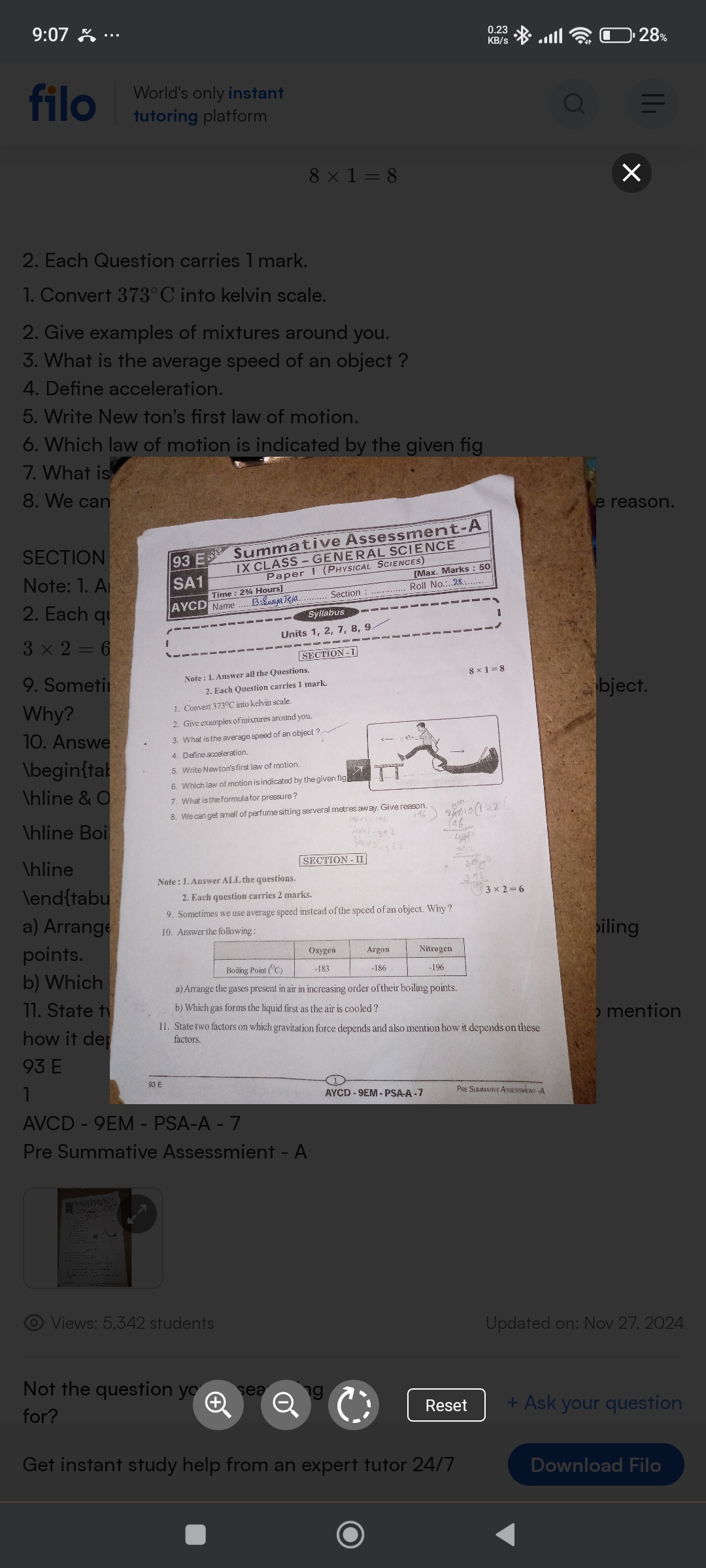1. Convert 373°C into kelvin scale. 2. Give examples of mixtures around you. 3. What is the average speed of an object? 4. Define acceleration. 5. Write Newton's first law of motio... 1. Convert 373°C into kelvin scale. 2. Give examples of mixtures around you. 3. What is the average speed of an object? 4. Define acceleration. 5. Write Newton's first law of motion. 6. Which law of motion is indicated by the given figure? 7. What is the formula for pressure? 8. Sometimes we use average speed instead of the speed of an object. Why? 9. Arrange the gases present in air in increasing order of their boiling points. 10. Which gas forms the liquid first as the air is cooled? 11. State two factors on which gravitation force depends and also mention how it depends on these factors.

Understand the Problem
The question addresses various topics in general science, including temperature conversion, mixtures, motion, and properties of gases. It requires knowledge of scientific concepts and definitions.
Answer
1. 646.15 K, 2. Air, salad, concrete, 3. Total distance divided by total time, 4. Rate of change of velocity, 5. An object at rest stays at rest unless acted upon, 6. Not visible, 7. Pressure = Force/Area, 8. Simplifies entire journey, 9. Oxygen, Argon, Nitrogen, 10. Oxygen, 11. Mass and distance.
["1. 646.15 K.","2. Air, salad, and concrete.","3. Total distance divided by total time.","4. Rate of change of velocity with time.","5. An object will remain at rest or in uniform motion in a straight line unless acted upon by an external force.","6. Cannot determine from image description.","7. Pressure = Force/Area.","8. Average speed gives a general measure over an entire journey.","9. Increasing boiling points: Oxygen, Argon, Nitrogen.","10. Oxygen forms the liquid first.","11. Gravitational force depends on mass (directly) and distance (inversely squared)."]
Answer for screen readers
["1. 646.15 K.","2. Air, salad, and concrete.","3. Total distance divided by total time.","4. Rate of change of velocity with time.","5. An object will remain at rest or in uniform motion in a straight line unless acted upon by an external force.","6. Cannot determine from image description.","7. Pressure = Force/Area.","8. Average speed gives a general measure over an entire journey.","9. Increasing boiling points: Oxygen, Argon, Nitrogen.","10. Oxygen forms the liquid first.","11. Gravitational force depends on mass (directly) and distance (inversely squared)."]
More Information
The Kelvin scale is based on absolute zero, the lowest theoretical temperature. Mixtures are combinations where no chemical bonding occurs. Newton's First Law introduces inertia, a fundamental concept in classical mechanics.
Tips
Common misconception: Kelvin doesn't directly add Celsius; always convert using +273.15.
Sources
AI-generated content may contain errors. Please verify critical information